The developments in the Russia-Ukraine conflict, the Russian Prime Minister's visit to China, the Indian Prime Minister's talks with his Australian counterpart, the US declaring it will never default on its debt... are some of the notable international events in the past 24 hours.
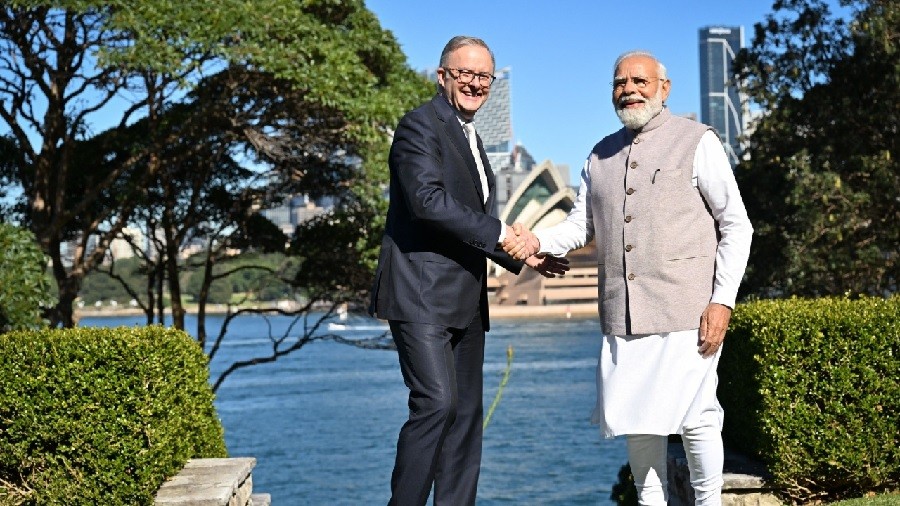 |
| Australian Prime Minister Anthony Albanese welcomes his Indian counterpart Narendra Modi in Sydney on May 24. (Source: AFP) |
The World & Vietnam Newspaper updates some of the day's outstanding international news:
Russia-Ukraine
* Germany shows 'powerlessness' with fighter jet alliance for Ukraine: A fighter jet alliance for Kiev is gradually taking shape as Poland, the Netherlands and two other EU member states expressed their desire to train Ukrainian pilots.
After training, the second step could be sending fighter jets to Ukraine, including F-16s, in the context that the US has also given the green light for this.
Germany is currently looking at how it could support such a fighter jet alliance, but according to Defence Minister Boris Pistorius, Berlin's contribution would be "insignificant".
Explaining this, Mr. Pistorius said that Germany "does not own F-16 fighter jets and probably cannot help much with pilot training", instead, Berlin can participate in logistical or financial support for the alliance. (TVN 24)
* Russia claims to have shot down Ukrainian planes using an automatic air defense system: On May 24, RIA Novosti quoted an informed source as saying that Russia's S-350 Vityaz air defense system shot down several Ukrainian fighter jets and unmanned aerial vehicles (UAVs) in fully automatic mode.
The unmanned Vityaz air defense system also detects and tracks air targets. Russia only controls the operation of the entire system.
* Russia will achieve its goals in Ukraine at all costs , Kremlin spokesman Dmitry Peskov said on May 24.
Asked if Russia was considering freezing the conflict, Peskov replied: "Russia is only considering the completion of a special military operation: ensuring its interests, achieving Russia's goals through a special military operation or by other available means." (Reuters)
* Ukraine uses 'smokescreen' to counterattack: On May 23, the General Intelligence Directorate of the Ministry of Defense of Ukraine announced that the country's counterattack campaign will begin in the near future because Kiev now has the minimum necessary weapons.
Meanwhile, according to the Russian military website, Kiev did not specify the direction of the operation, but it is very likely that the attack on the border province of Belgorod - which Moscow accused of being carried out by Ukrainian commandos, but Kiev denied - was an attempt to distract the Russian army and weaken its control on the front line.
Experts believe that Kherson and Zaporizhzhia will become the areas where the Ukrainian army is most likely to launch a counterattack, but it is not excluded that Kiev could take advantage of Wagner's withdrawal to attack Bakhmut, as well as neighboring areas, to advance towards Donetsk.
Recently, the Ukrainian armed forces have also been highly active along the entire front line, making it very difficult to assess the direction of attack.
Meanwhile, on the same day, Ukrainian President Volodymyr Zelensky announced that the country will establish a Marine Corps to significantly strengthen the potential of the national Navy. (Axar, THX)
| RELATED NEWS | |
| Ukraine situation: Russia talks about the possibility of freezing the conflict, Hungary predicts Kiev 'cannot win' | |
Europe
* France highlighted Beijing's role in European peace , after Chinese Special Envoy for Eurasian Affairs Li Hui visited Paris and met with Director of the French Foreign Ministry's Political-Security Affairs Department Frederic Mondoloni.
On May 23, the French Foreign Ministry issued a statement emphasizing: "Director Mondoloni welcomes Mr. Li Hui's visit to Europe, as well as the renewal of dialogue between China and Ukraine."
According to Mondoloni, France believes that "China can play a constructive role in bringing about a just and verifiable peace to Europe within the framework of international law." (Sputnik)
* Poland plans to launch a submarine procurement program in 2023 , with the transfer of the necessary technologies, according to the country's Defense Minister Mariusz Blaszczak, noting that the tender will begin soon.
Poland has increased military spending since the conflict in Ukraine erupted last February, with the government pledging to double the size of its army and spend 4% of GDP on defense by 2023. (Reuters)
* Russian Su-27s scrambled to intercept US bombers over the Baltic Sea: Moscow announced that on May 23, its air traffic control vehicles over the Baltic Sea detected two airborne targets approaching the national border.
A Su-27 fighter jet of the Russian Baltic Fleet air defense forces was scrambled to prevent a violation of the state border," and identified them as two US Air Force B-1B strategic bombers.
According to the announcement, the Su-27 controlled the process of these two aircraft leaving Russian airspace and "was carried out in strict accordance with international rules on the use of airspace." (TASS)
* The US has made a separate proposal on the Armenia-Azerbaijan issue to Baku and Yerevan, according to First Deputy Assistant Secretary of State for European and Eurasian Affairs Derek Hogan, stressing that some progress has been made in the ongoing negotiations between the two countries.
"The United States is working on some of the most contentious issues, including the disengagement of forces along the border, the dispute resolution mechanism in the treaty that we are trying to facilitate, the rights and security of Armenians in Nagorno Karabakh," Mr. Hogan said.
The US diplomat said he spoke with the foreign ministers of Armenia and Azerbaijan last week in an effort to find areas where progress could be made. (TASS)
* Russia considers ban on oil exports: Reuters on May 23 quoted government sources as saying that the Russian government is considering banning oil exports to prevent fuel shortages in the country.
The measure is also expected to stem price increases after Russia's Finance Ministry decided to reduce fuel subsidies for refineries.
The Russian government may also increase the minimum volume required to sell gasoline for cars on the commodity exchange and halve subsidies to refineries from July to supplement the budget, according to sources.
| RELATED NEWS | |
| The unpredictable danger from Russia's ever-growing 'gray fleet' | |
Asia
* Indian, Australian prime ministers hold talks: On the morning of May 24, Indian Prime Minister Narendra Modi held wide-ranging talks with his Australian counterpart Anthony Albanese in Sydney, discussing ways to promote overall bilateral relations, including trade and investment, defense and renewable energy.
As a member of the Quad Group, which includes Japan and the US, Mr. Modi said after the meeting: "Quad leaders stand together for an open, stable, secure environment and a prosperous Indo-Pacific region...".
He added that the two countries discussed taking the Australia-India comprehensive strategic partnership to new heights over the next decade.
For his part, Prime Minister Albanese stressed that the two leaders reiterated their shared desire to soon sign the Australia-India Comprehensive Economic Cooperation Agreement this year.
In addition, Mr. Albanese also announced the opening of the Australian Consulate General in Bengaluru city (capital of Karnataka state). (Reuters)
* Japan affirms no plans to join NATO: On May 24, Japanese Prime Minister Kishida Fumio announced that Tokyo has no plans to join the North Atlantic Treaty Organization (NATO) as a member or semi-member state.
However, Mr. Kishida admitted that NATO plans to open a liaison office in Japan.
Meanwhile, on the same day, China announced its opposition to NATO's plan to open a representative office in Japan. (Reuters)
* China is ready to elevate relations with Russia: On May 24, during a meeting with his Russian counterpart Mikhail Mishustin who is visiting Beijing, Chinese Prime Minister Li Qiang declared that China is ready to cooperate with Moscow to bring bilateral substantive cooperation to "new heights".
According to Mr. Li Qiang, the substantive cooperation between Russia and China shows a "good" development trend, and the scale of investment between the two countries is also constantly being upgraded.
For his part, Russian Prime Minister Mishustin affirmed that relations between Moscow and Beijing are currently at an "unprecedented high", demonstrated by "mutual respect for each country's interests, the intention to join hands to respond to new challenges related to growing instability in the international arena and illegal sanctions pressure from the West".
Following the talks, the two sides signed a number of protocols on phytosanitary measures for exports from Russia to China and requirements for grain, as well as increased investment in the trade sector. (Reuters)
* The United States and South Korea have imposed sanctions on North Korean entities and individuals accused of engaging in illegal cyber activities that help fund Pyongyang's weapons development programs.
Accordingly, on May 23, the US blacklisted four North Korean organizations: Pyongyang University of Automation, Technical Reconnaissance Bureau, 110 Research Center; and Chinyong Information Technology Cooperation Company.
The sanctioned individual is Kim Sang-man, a representative of Chinyong Company in Vladivostok (Russia), who is said to be responsible for paying salaries to family members of the company's North Korean experts abroad.
Meanwhile, South Korea imposed additional unilateral sanctions on three North Korean entities and seven individuals, marking Seoul's seventh round of independent sanctions against Pyongyang since President Yoon Suk Yeol took office. (Yonhap)
| RELATED NEWS | |
| Japan-South Korea really getting closer? | |
America
* Cuba will hold a joint council meeting with the EU in Havana on May 26 to review the implementation of the Political Dialogue and Cooperation Agreement (PDCA) signed in 2016 to consolidate and strengthen relations between the parties in the fields of political dialogue, cooperation and trade.
The Joint Council will be co-chaired by Cuban Foreign Minister Bruno Rodríguez and EU High Representative for Foreign Affairs and Security Policy Josep Borrell.
The Cuban Foreign Ministry said that the EU High Representative will carry out a rich programme of activities during his stay in Havana, including meetings with the authorities and representatives of different sectors of Cuban society, as well as visits to identify potential areas of bilateral cooperation. (Prensa Latina)
* The US declares it will never default: On May 23, commenting on the fact that US President Joe Biden and House Speaker Kevin McCarthy have not yet agreed on a plan to raise the debt ceiling, White House press secretary Karine Jean-Pierre said: "We are still paying the bills, we have never defaulted and never will."
On the same day, Mr. McCarthy said that only President Biden was responsible for the possibility that the US could default in the next few days, noting that there were only 9 days left until the expected time when Washington could not pay its debt without a decision to increase the borrowing limit.
Previously, Mr. Biden met Mr. McCarthy at the White House, but after negotiations, the two sides still did not reach a common solution.
Furthermore, according to US media, in a closed-door conversation with party figures, Mr. McCarthy said that the executive and legislative branches were not any closer to reaching an agreement. (Reuters)
* Peru declares Mexican President “persona non grata”: On May 23, with 11 votes in favor, 3 abstentions and 1 vote against, the Foreign Affairs Committee of the Peruvian National Assembly passed a resolution declaring Mexican President Andrés Manuel López Obrador “persona non grata”.
The move came after Mr. Obrador's remarks to his Peruvian counterpart Dina Boluarte. (TTXVN)
Source


![[Photo] Party and State leaders attend the special art program "You are Ho Chi Minh"](https://vphoto.vietnam.vn/thumb/1200x675/vietnam/resource/IMAGE/2025/5/18/6895913f94fd4c51aa4564ab14c3f250)



![[Photo] Many young people patiently lined up under the hot sun to receive a special supplement from Nhan Dan Newspaper.](https://vphoto.vietnam.vn/thumb/1200x675/vietnam/resource/IMAGE/2025/5/18/6f19d322f9364f0ebb6fbfe9377842d3)
![[Photo] Ready for the top competitions of Vietnamese table tennis](https://vphoto.vietnam.vn/thumb/1200x675/vietnam/resource/IMAGE/2025/5/18/9c547c497c5a4ade8f98c8e7d44f5a41)
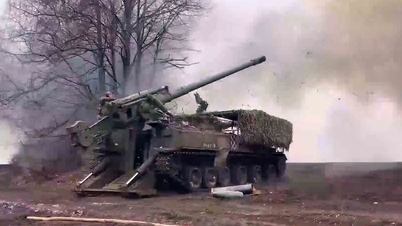



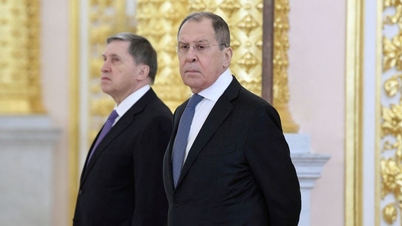



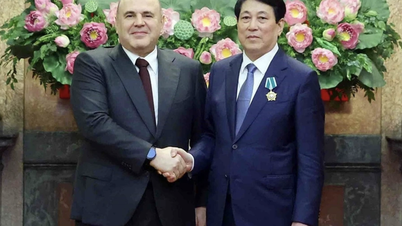



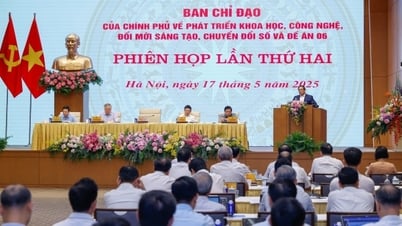
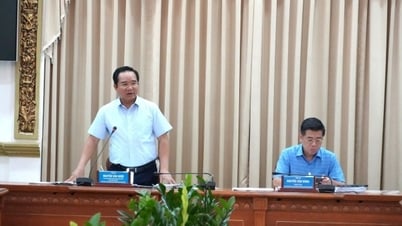
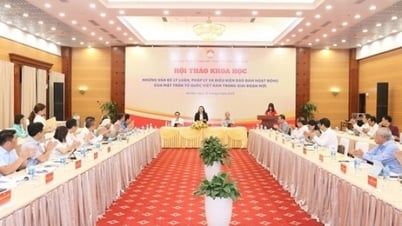
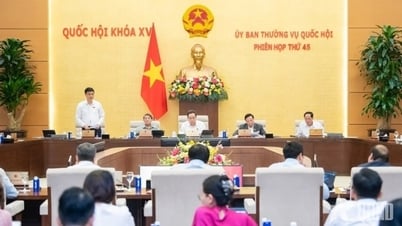
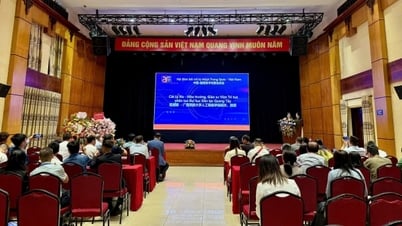





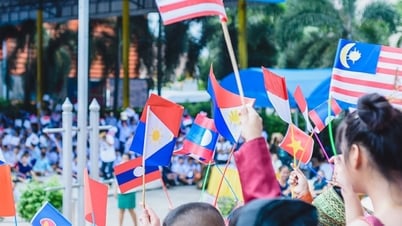


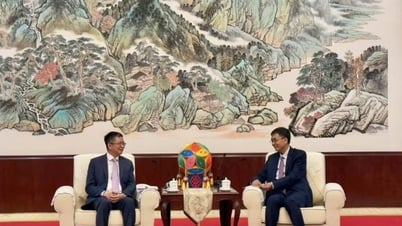






























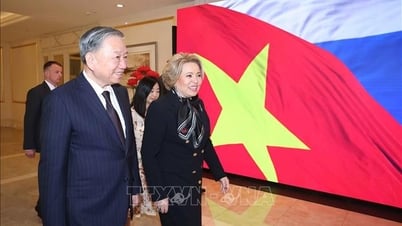


















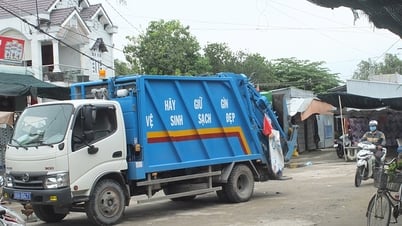
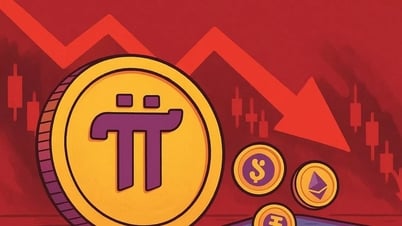
















Comment (0)